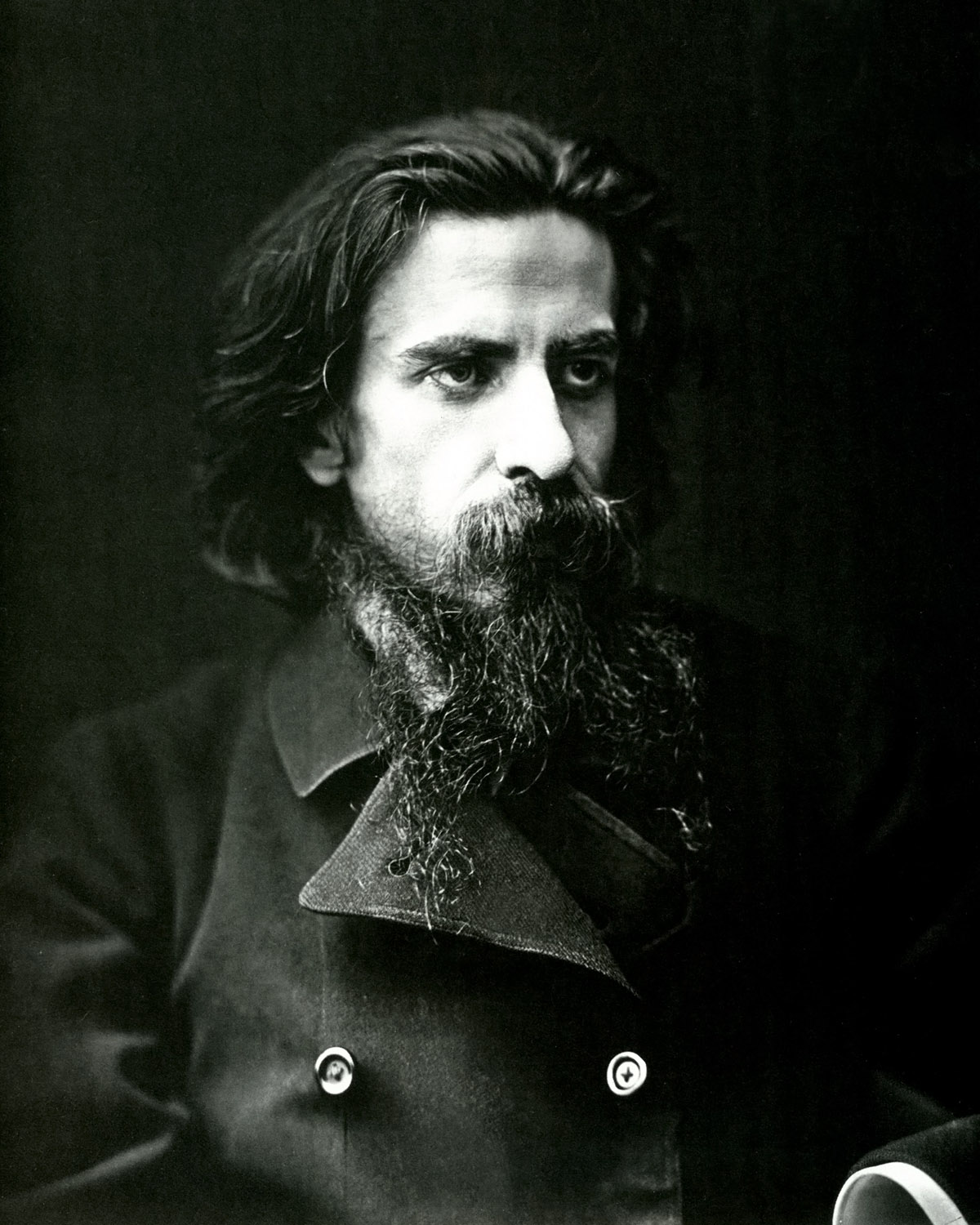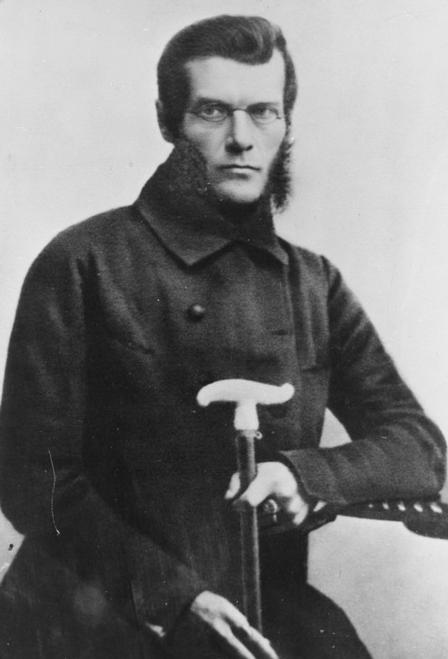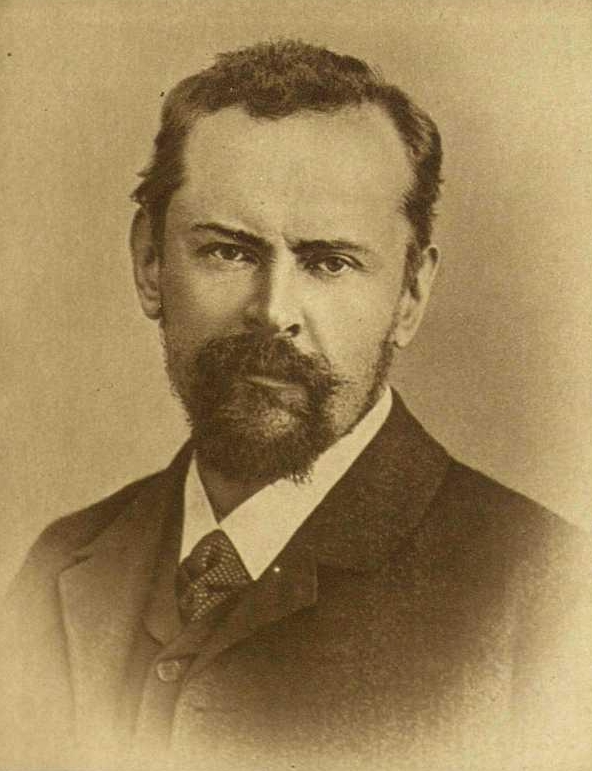|
Sobornost
Sobornost ( rus, собо́рность, p=sɐˈbornəstʲ "spiritual community of many jointly-living people") is a Russian term whose usage is primarily attributed to the 19th-century Slavophile Russian writers Ivan Kireyevsky (1806-1856) and Aleksey Khomyakov (1804-1860). The term expresses the need for co-operation between people at the expense of individualism, on the basis that opposing groups focus on what is common between them. Khomyakov believed that the Western world was progressively losing its unity because it was embracing Aristotle and his defining individualism. Kireyevsky believed that G. W. F. Hegel and Aristotle represented the same ideal of unity. Khomyakov and Kireyevsky originally used the term ''sobor'' ( ru , собор) to designate co-operation within the Russian ''obshchina'', united by a set of common convictions and Eastern Orthodox values, as opposed to the cult of individualism in the West. The term ''sobor'' in Russian has multiple co-relat ... [...More Info...] [...Related Items...] OR: [Wikipedia] [Google] [Baidu] |
Aleksey Khomyakov
Aleksey Stepanovich Khomyakov (russian: Алексе́й Степа́нович Хомяко́в; May 13 ( O.S. May 1) 1804, Moscow – October 5 (O.S. September 23), 1860, Moscow) was a Russian theologian, philosopher, poet and amateur artist. He co-founded the Slavophile movement along with Ivan Kireyevsky, and he became one of its most distinguished theoreticians. His son Nikolay Khomyakov was a speaker of the State Duma. Biography Khomyakov's whole life was centred on Moscow. He viewed this "thousand-domed city" as the epitome of the Russian way of life. Equally successful as a landlord and conversationalist, he published very little during his lifetime. His writings, printed posthumously by his friends and disciples, exerted a profound influence on the Russian Orthodox Church and Russian lay philosophers, such as Fyodor Dostoyevsky, Konstantin Pobedonostsev, and Vladimir Solovyov. For Khomyakov, socialism and capitalism were equally repugnant offspring of Western deca ... [...More Info...] [...Related Items...] OR: [Wikipedia] [Google] [Baidu] |
Nikolai Lossky
Nikolay Onufriyevich Lossky. (; – 24 January 1965), also known as N. O. Lossky, was a Russian philosopher, representative of Russian idealism, intuitionist epistemology, personalism, libertarianism, ethics and axiology (value theory). He gave his philosophical system the name ''intuitive-personalism''. Born in Latvia, he spent his working life in St. Petersburg, New York, and Paris. He was the father of the influential Christian theologian Vladimir Lossky.Sciabarra, Chris Matthew.Investigation: the Search for Ayn Rand's Russian Roots" ''Liberty'' 1999-10. 10 August 2006. Life Lossky was born in Krāslava then in the Russian Empire. His father, Onufry Lossky, had Belarusian roots (his grandfather was a Greek-Catholic Uniate priest) and was an Eastern Orthodox Christian; his mother Adelajda Przylenicka was Polish and Roman Catholic. He was expelled from school for propagating atheism. Lossky undertook postgraduate studies in Germany under Wilhelm Windelband, Wilhelm Wundt and G ... [...More Info...] [...Related Items...] OR: [Wikipedia] [Google] [Baidu] |
Vladimir Solovyov (philosopher)
Vladimir Sergeyevich Solovyov (russian: Влади́мир Серге́евич Соловьёв; also romanized as Soloviev; – ), a Russian philosopher, theologian, poet, pamphleteer, and literary critic, played a significant role in the development of Russian philosophy and poetry at the end of the 19th century and in the spiritual renaissance of the early-20th century. Life and work Vladimir Solovyov was born in Moscow; the son of the historian Sergey Mikhaylovich Solovyov (1820–1879); his elder brother Vsevolod (1849-1903), became a historical novelist, and his younger sister, Polyxena (1867-1924), became a poet. Vladimir Solovyov's mother Polyxena Vladimirovna belonged to a family of Polish origin and had, among her ancestors, philosopher Gregory Skovoroda (1722–1794). In his teens, he renounced Eastern Orthodoxy for nihilism, but later his disapproval of positivism saw him begin to express views that were in line with those of the Orthodox Church. From 1869 t ... [...More Info...] [...Related Items...] OR: [Wikipedia] [Google] [Baidu] |
Slavophilia
Slavophilia (russian: Славянофильство) was an intellectual movement originating from the 19th century that wanted the Russian Empire to be developed on the basis of values and institutions derived from Russia's early history. Slavophiles opposed the influences of Western Europe in Russia. Depending on the historical context, the opposite of Slavophilia could be seen as Slavophobia (a fear of Slavic culture) or also what some Russian intellectuals (such as Ivan Aksakov) called ''zapadnichestvo'' (westernism). History Slavophilia, as an intellectual movement, was developed in 19th-century Russia. In a sense, there was not one but many Slavophile movements or many branches of the same movement. Some were leftist and noted that progressive ideas such as democracy were intrinsic to the Russian experience, as proved by what they considered to be the rough democracy of medieval Novgorod. Some were rightist and pointed to the centuries-old tradition of the autocratic tsa ... [...More Info...] [...Related Items...] OR: [Wikipedia] [Google] [Baidu] |
Ivan Kireyevsky
Ivan Vasilyevich Kireyevsky (russian: link=no, Ива́н Васи́льевич Кире́евский; 3 April 1806, Moscow – 23 June 1856, Saint Petersburg) was a Russian literary critic and philosopher who, together with Aleksey Khomyakov, is credited as a co-founder of the Slavophile movement. Early life and career Ivan Kireyevsky and his brother Pyotr were born into a cultivated noble family of considerable means. Their father was known for hating French atheism so passionately that he would burn heaps of Voltaire's books, acquired specifically for the purpose. He contracted a fatal case of typhus while treating wounded soldiers during the French invasion of Russia. The boy was just six at the time of his death; he was brought up by a maternal uncle, Vasily Zhukovsky, and his mother, Avdotya Yelagina, who would later become an influential lady with a brilliant salon in Moscow. She professed her dislike of Peter the Great for his treatment of his wife Eudoxia and the Lopu ... [...More Info...] [...Related Items...] OR: [Wikipedia] [Google] [Baidu] |
Obshchina
Obshchina ( rus, община, p=ɐpˈɕːinə, literally "commune") or mir (russian: мир, literally "society", among other meanings), or selskoye obshchestvo (russian: сельское общество, literally "rural community", official term in the 19th and 20th century; sil's'ke tovarystvo, uk, сільське товариство, literally "rural community"), were peasant village communities as opposed to individual farmsteads, or khutors, in Imperial Russia. The term derives from the word ''obshchiy'' (russian: общий, literally "common"). The mir was a community consisting of former serfs, or state peasants and their descendants, settled as a rule in a single village, although sometimes a village included more than one mir and, conversely, several villages were sometimes combined in a single mir. The title of the land was vested in the mir and not in the individual peasant. Members of the mir had the right to the allotment, on some uniform basis, of a holding t ... [...More Info...] [...Related Items...] OR: [Wikipedia] [Google] [Baidu] |
Russian Orthodox Church
, native_name_lang = ru , image = Moscow July 2011-7a.jpg , imagewidth = , alt = , caption = Cathedral of Christ the Saviour in Moscow, Russia , abbreviation = ROC , type = , main_classification = Eastern Orthodox , orientation = Russian Orthodoxy , scripture = Elizabeth Bible ( Church Slavonic) Synodal Bible (Russian) , theology = Eastern Orthodox theology , polity = Episcopal , governance = Holy Synod of the Russian Orthodox Church , structure = Communion , leader_title = , leader_name = , leader_title1 = Primate , leader_name1 = Patriarch Kirill of Moscow , leader_title2 = , leader_name2 = , leader_title3 = Bishops , leader_name3 = 382 (2019) , fellowships_type = Clergy , fellowships = 40,514 full-time clerics, including 35,677 presbyters and 4,837 de ... [...More Info...] [...Related Items...] OR: [Wikipedia] [Google] [Baidu] |
Sergei Nikolaevich Trubetskoy
Prince Sergei Nikolaevich Trubetskoy (russian: Серге́й Никола́евич Трубецко́й; 4 August [Old Style and New Style dates, O. S. 23 June] 1862 – 23 September 1905) was a List of Russian philosophers, Russian Christian philosophy, religious philosopher. He was the son of Prince Nikolai Petrovitch Trubetskoy, co-founder of the Moscow Conservatory, and Sophia Alekseievna Lopouchina, who was a big influence on his religious thought. Trubetskoy and his brother, Evgenii Nikolaevitch Troubetzkoy (1863–1920), continued Vladimir Solovyov (philosopher), Vladimir Solovyov's work on developing a modern Christian philosophy of the world. He was also a professor of philosophy at Moscow University and a founding member of the underground discussion circle ''Beseda''.Figes, p. 168 Biography Early life Trubetskoy became an adherent of the British Positivism, Positivists Herbert Spencer and John Stuart Mill as a teenager. Later he became disappointed with both and turned ... [...More Info...] [...Related Items...] OR: [Wikipedia] [Google] [Baidu] |
Chris Matthew Sciabarra
Chris Matthew Sciabarra (born February 17, 1960) is an American political theorist based in Brooklyn, New York. He is the author of three scholarly books—''Marx, Hayek, and Utopia''; '' Ayn Rand: The Russian Radical''; and ''Total Freedom: Toward a Dialectical Libertarianism''—as well as several shorter works. He is also the co-editor, with Mimi Reisel Gladstein, of ''Feminist Interpretations of Ayn Rand'' and co-editor with Roger E. Bissell and Edward W. Younkins of ''The Dialectics of Liberty: Exploring the Context of Human Freedom''. His work has focused on topics including Objectivism, libertarianism (particularly the work of Friedrich Hayek and Murray Rothbard), and dialectics. Life Sciabarra was a visiting scholar at New York University from 1989 to 2009, where he earned his BA in history (with honors) in 1982; his MA in Politics in 1983; and his PhD in Political Philosophy, Theory, and Methodology in 1988, under the supervision of Bertell Ollman. In 1999 he became the ... [...More Info...] [...Related Items...] OR: [Wikipedia] [Google] [Baidu] |
The Russian Radical
''The'' () is a grammatical article in English, denoting persons or things that are already or about to be mentioned, under discussion, implied or otherwise presumed familiar to listeners, readers, or speakers. It is the definite article in English. ''The'' is the most frequently used word in the English language; studies and analyses of texts have found it to account for seven percent of all printed English-language words. It is derived from gendered articles in Old English which combined in Middle English and now has a single form used with nouns of any gender. The word can be used with both singular and plural nouns, and with a noun that starts with any letter. This is different from many other languages, which have different forms of the definite article for different genders or numbers. Pronunciation In most dialects, "the" is pronounced as (with the voiced dental fricative followed by a schwa) when followed by a consonant sound, and as (homophone of the archai ... [...More Info...] [...Related Items...] OR: [Wikipedia] [Google] [Baidu] |
Sergei Bulgakov
Sergei Nikolaevich Bulgakov (; russian: Серге́й Никола́евич Булга́ков; – 13 July 1944) was a Russian Eastern Orthodox Church, Orthodox theologian, priest, philosopher, and economist. Biography Early life: 1871–1898 Sergei Nikolaevich Bulgakov was born on 16 July 1871 to the family of an Russian Orthodox Church, Orthodox priest (Nikolai Bulgakov) in the town of Livny, Oryol guberniya, in Russia. The family produced Orthodox priests for six generations, beginning in the sixteenth century with their ancestor Bulgak, a Tatars, Tatar from whom the family name derives. Metropolitan bishop, Metropolitan Macarius Bulgakov (1816–1882), one of the major Eastern Orthodox theologians of his days, and one of the most important Russian church historians, was a distant relative. At the age of fourteen, after three years at the local parish school, Bulgakov entered the seminary in Orel. In 1888, however, Bulgakov quit the seminary after a loss of his faith. Bul ... [...More Info...] [...Related Items...] OR: [Wikipedia] [Google] [Baidu] |





.png)
